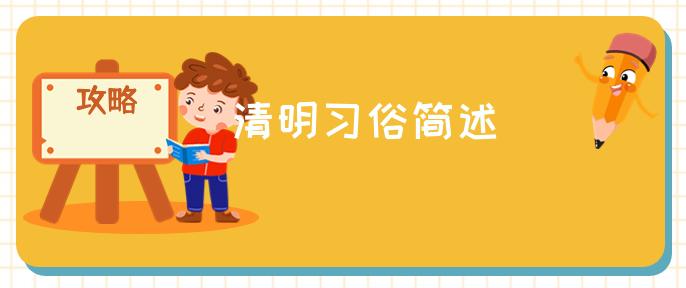 2025-07-18 08:36:24
2025-07-18 08:36:24
 次阅读
次阅读

清明节是中国的传统节日,主要习俗包括扫墓、踏青、放风筝和吃青团。扫墓是祭拜祖先,表达敬意;踏青是春游,享受自然;放风筝象征放飞烦恼;青团是节日特色食品,象征团圆。
The Qingming Festival, a significant holiday in China, is steeped in traditions and activities that honor the past and celebrate the arrival of spring. Here is an overview of the key customs associated with this festival, along with their English translations:
Qingming Festival - Also referred to as Tomb-Sweeping Day, this festival is a time-honored occasion for honoring ancestors. It's a day when families gather to remember and pay respects to their forebears.
Tomb-Sweeping - This custom stands at the heart of the Qingming Festival. It involves the cleaning and maintenance of ancestral graves, symbolizing the continuation of family lineage and respect for the deceased.
Spring Outing - As temperatures rise and nature comes back to life, the Qingming Festival is also a time for people to enjoy the outdoors. Known as "taqing," this activity allows individuals to appreciate the rejuvenation of the natural world.
Kite Flying - A popular pastime, especially among children, kite flying is a traditional activity that takes place during the Qingming Festival. It's a symbol of hope and a way to connect with the skies.
Planting Willows - The act of planting willow trees during the festival represents the cycle of life and the renewal of nature, aligning with the themes of spring and rebirth.
Sweet Green Rice Ball - These glutinous rice balls, often filled with sweet ingredients, are a traditional food enjoyed during the Qingming Festival. They are a tasty representation of the season's flavors.
Spiritual Money - Known also as "joss paper," spiritual money is a paper currency that is burned as an offering to the deceased, symbolizing the continuation of care and provision in the afterlife.
Grave - The final resting place of loved ones, graves are visited and maintained during the tomb-sweeping custom, ensuring that the memory of the deceased is kept alive.
Clear and Bright - This phrase translates the name of the solar term associated with the Qingming Festival, which typically occurs around April 5th, marking the beginning of the festival.
Ancestor Worship - A central aspect of the Qingming Festival, ancestor worship is a practice that involves honoring and remembering one's ancestors, reinforcing familial bonds and cultural heritage.
Expanding our knowledge, the Qingming Festival's influence extends beyond China's borders. In countries like Japan and Korea, similar springtime rituals of honoring the dead are observed. Additionally, in various regions of China, traditional activities such as folk dances and swinging are part of the festival's celebration, showcasing the richness of Chinese cultural traditions. The Qingming Festival also serves as an important time for family reunions and the continuation of filial piety within the family structure.
Source: Mr. Wu
©本文版权归作者所有,任何形式转载请联系我们:xiehuiyue@offercoming.com。